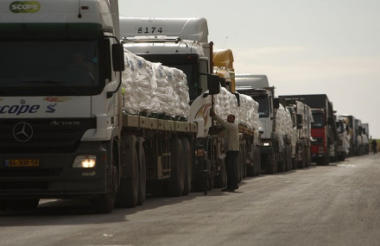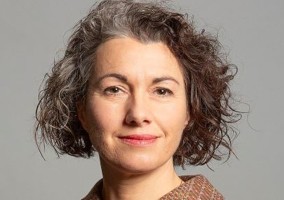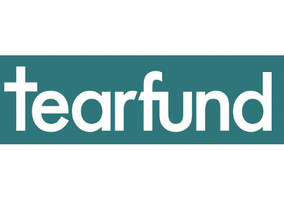The government will consider giving aid charities extra funding for safeguarding work on a “case-by-case” basis, after rejecting calls to cover all costs for supporting victims of abuse.
MPs recommended earlier this year that government funding to aid organisations should include the costs of supporting survivors of abuse, but the Foreign, Commonwealth and Development Office (FCDO) yesterday said that the complexity of abuse and exploitation overseas “does not lend itself to including a requirement on individual partners through funding agreements”.
FCDO also ruled out increasing scrutiny of whistleblowing policies and the use of non-disclosure agreements at the charities it funds.
Last Friday there were revelations of new allegations of abuse by Oxfam staff, which led the charity to suspend two employees and open an external investigation.
Complex
Parliament’s International Development Committee published the conclusion of its inquiry into sexual abuse and exploitation in the aid sector in January.
MPs warned that abuse and exploitation was still "rife" in the aid sector. Their report said that “the FCDO should include the cost of supporting victims and survivors in grants and contracts for running programmes that it funds”.
In its response, published yesterday, the FCDO said that it continued to “actively encourage partners to include costs and to build sexual abuse, exploitation and harassment considerations into tender processes and funding proposals”.
The report added: “Survivor support is complex and the existence of response services are often dependent on government provision or humanitarian emergency response.
“In fragile and conflict affected areas such provision is often inadequate or absent and beyond the power of implementing partners to fix in any meaningful way.
“The FCDO will consider any related requests for funding on a case-by-case basis as part of usual grant and contract management processes.
“In some very fragile and conflict-affected areas it may not be possible to ensure access to all the support and services that a victim or survivor request.
“Increasing the supply of such services in any given location will require coordinated action across multiple local, national and international partners which does not lend itself to including a requirement on individual partners through funding agreements.”
Commission's role in whistleblowing
The government also rejected calls to audit “how whistleblowing practices are being implemented and used” by aid charities, after concerns that people had struggled to raise concerns about abuse.
The FCDO said that it already assesses whistleblowing capacity at any organisation it funds, and that a full audit would be “resource intensive, take years to complete and only provide a snapshot of performance”.
The government instead backed the ongoing role of the Charity Commission, which “have made it easier for whistle-blowers to come forward and report their serious concerns.
“This means the Commission is well placed to identify any shortcomings in charities’ practices through its casework involving whistleblowing”.
Pledge to 'monitor' NDA use
Charities will not be required to disclose to the government how many non-disclosure agreements (NDAs) they have signed.
The committee had recommended that this should be added to FCDO’s due diligence work with the organisations it funded, but FCDO rejected this reform.
It said: “We agree that NDAs must not be misused to silence individuals who raise legitimate concerns.
“We do not think that asking organisations as part of due diligence to report the number of NDAs they have signed is the most effective way of emphasising that point.
“NDAs are legitimate tools of business and counting their prevalence will not give us any information about improper use or whistleblowing.”
Instead, the government said it would “actively monitor the appropriate use of NDAs and manage the risk of abuse”.
MPs said that NDAs can contribute to a “cover-up culture” at aid charities.
Bond: Safeguarding must be protected from cuts
Stephanie Draper, chief executive of the aid umbrella body Bond, who gave evidence to the inquiry, urged charities to include safeguarding costs in all their funding applications.
Draper told Civil Society News: “It’s critical that NGOs and their partners include safeguarding costs in funding proposals and that donors build sexual exploitation, abuse and harassment considerations into tender processes.”
She also called on the government to ensure safeguarding was protected from current aid cuts.
Draper said: “In a period where drastic cuts to UK aid are being called for, attention to safeguarding must be sustained.
“We urge the FCDO to protect funding that protects people from sexual exploitation, abuse and harassment from cuts to the aid budget.”
“Safeguarding is not a one-off cost, funding needs to be ongoing if we are to combat sexual exploitation, abuse and sexual harassment in all its horrendous forms.”
A spokesperson for the Small International Development Charities Network described the government's decision not to guarantee additional safeguarding funding as "deeply disappointing".
The added: "Small international development charities, embedded in the communities they serve, aim to prevent harm, meet best practice in safeguarding, and deliver the support that victims and survivors need.
"This requires funding for the appropriate planning, training, services and processes to be in place. FCDO's rejection leaves them carrying the financial burden to do so.
"The case-by-case basis for support will disproportionately impact small charities, which make up the majority of the sector, and their ability to access vital funding, and will ultimately lead to less support for victims and survivors.
"We are at a loss as to why safeguarding funding would be something to cut or limit and urge that funding for safeguarding is protected."
Editor's note: Updated on 7 April to include a quote from the Small International Development Charities Network
Related articles













